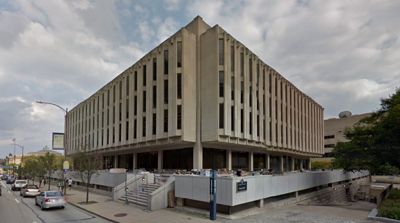University of Pittsburgh Library System Chooses Preservica
To safeguard 2 million digitized pages and born-digital materials
This is a Press Release edited by StorageNewsletter.com on July 16, 2020 at 2:01 pmThe University of Pittsburgh Library System (ULS) has selected digital preservation specialist Preservica Ltd to safeguard over 2 million digitized pages and born-digital materials including university records, archives, and special collections.

Tracing its roots back to 1787, the university is one of the oldest institutions of higher education in the US. Managing the largest digital repository in western Pennsylvania, it has been actively digitizing content from its Archives and Special Collections (A&SC) since 1999. The digitized collections include visual images, books, maps, artwork, manuscripts, atlases and AV material. Further, the A&SC is accessioning more and more born-digital material, including digital video created by horror film pioneer George A. Romero, part of the ULS’ George A. Romero Archival Collection. The A&SC is also working to convert its analog AV items to digital format and extract content from obsolete removable media.
Sustainable digital preservation
Using cloud-based Preservica will enable the ULS to consolidate the way it preserves digital content and make selected digital material more accessible through integration with existing and planned discovery systems. The system will store master and preservation copies of digital files, and born digital content managed by the ULS, including over 40 Open Access academic journals supported by the Library’s Office of Scholarly Communication and Publishing. Preservica will also enable the A&SC to preserve archival university records.
Ed Galloway, associate university librarian for archives and special collections, ULS, explains: “For 20 years, we have been relying on nightly and weekly tape backup by Pitt’s central IT department, and then moving those tapes off-site. However, backup is not the same as active digital preservation. With Preservica, we are ready to take our efforts to the next level with a cloud-hosted solution specifically designed to ensure the accessibility of our digital information over successive technology cycles and custodians.“
Flexible collection management
“With Preservica we can safely store, process, and make our electronic collections available to the people who need them,” he addeds. “Our archivists will be able to more flexibly manage collections, and can rename, refile, and sort digital content assets in the same efficient and sustainable way they would in the paper world – plus we’ll gain the benefit of being able to enhance our metadata and search, all while protecting vs. the obsolescence of digital formats.“
Kari May, the ULS digital archivist and preservation librarian, set up a rigorous selection process for evaluating digital preservation solutions.
“We looked at characteristics, such as geographic dispersal, file validation, the constant maintaining of check sums and open APIs for easy integration with our other library systems. We also mandated a digital preservation solution that supports the Americans with Disabilities Act,” he says. “At the end of the day, Preservica came out as the system with the most flexibility and the best options.“
Online access
One project May is excited about is implementing authenticated access for the university’s digital content that is protected by copyright. Preservica will enable the A&SC to set up an electronic equivalent to its on-site reading room, making the protected information network accessible and more convenient for researchers. For example, the A&SC curates digitally converted audio recordings of jazz musician and pianist Erroll Garner, which are protected by copyright. Preservica presents an opportunity to provide authenticated access to such recordings, as they cannot be distributed on the open Web.
May will also work with the ULS IT department to integrate Preservica with existing and planned systems such as the Alma integrated library system, Islandora, ArchivesSpace, and the Aeon customer management system, by using Preservica’s open APIs.
Preservica CEO Mike Quinn, comments: “We are delighted to welcome the University of Pittsburgh to the large community of academic institutions and library consortia around the world using Preservica to safeguard and provide access to all formats of digital content – from unique historical collections to critical research data.“













 Subscribe to our free daily newsletter
Subscribe to our free daily newsletter

